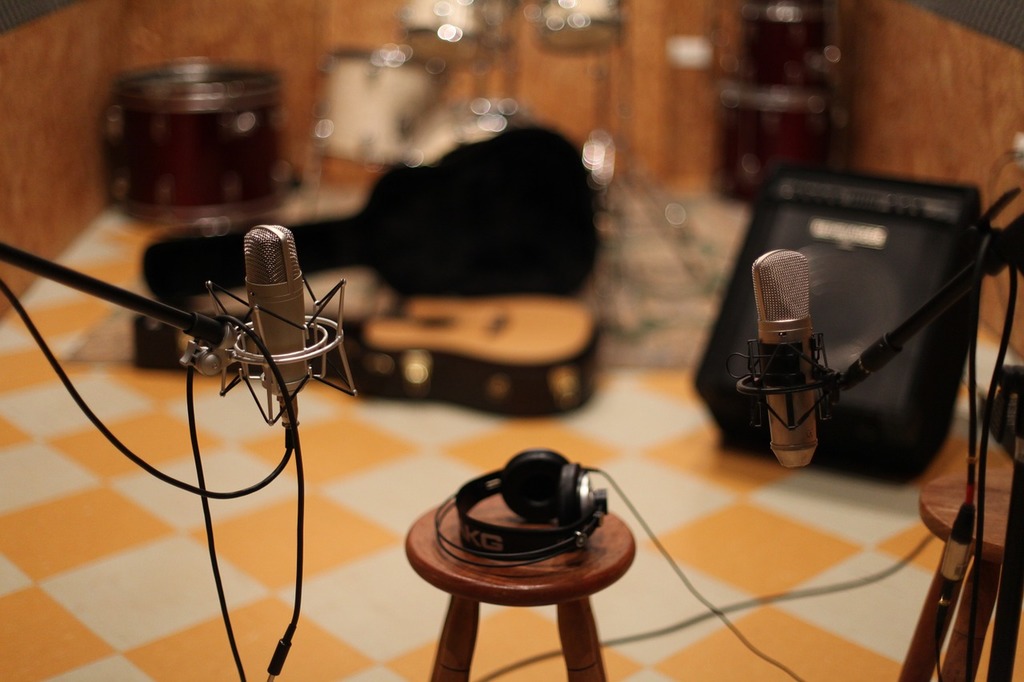When people think of podcasts, they probably wouldn’t associate them with theatre. Yet it was this seemingly unlikely convergence between the two forms that led me to attend the London Podcast Festival at King’s Place on September 7th. I was curious to see staged performances of audio drama. Indeed, part of my excitement lay in my fascination with the relationship between theatre and audio drama in the first place. Audio drama is an increasingly influential art form, with popularity continuing to surge every year. One of the most famous shows, Rusty Quill’s The Magnus Archives, hit 100 million downloads on Spotify alone in 2025. This popularity was reflected in the turnout at the Festival, where every event I attended was either almost or completely sold out.. Audio drama’s demographic is a diverse and youthful one, which responds positively to shows that push the form to its absolute limits. It has the potential to highlight the voices of marginalised groups, like queer and BAME individuals. And yet it still feels underrepresented in discussions both around literature and theatre, despite being a genuinely exciting sphere of artistic creativity.
The absence of audio drama from discussions of art is not a concern for me alone: prominent audio dramatist Amber Devereux, notable as the creator of the experimental speculative audio drama, The Tower, remarked how “audio drama as a distinct storytelling form as well as the theory of sound storytelling is something Ella [Watts, the writer of Arthurian post-apocalyptic fantasy show Camlann] and I spend a lot of time talking about, and it’s wonderful to read that we’re not alone in that! It’s also exciting that writing like this exists out there[;] there are tragically so [few] texts looking into audio drama and storytelling properly”. Staged audio drama is a different beast entirely to a conventional stage play. While elements like body language and physical humour are reintroduced, it is still defined by the trappings of the recording studio. Actors stand in front of microphones while performing with a script in hand, and creators are much more reliant on sound design and foley to convey a setting than a typical stage play; elaborate sets and props are rare. It is the audience’s imagination which projects the world around the actors.
What staged audio drama performances can often lean on, however, is the listener bringing in their pre-existing conceptions of the show’s setting. There are instances where a person’s image of a character clashes with the actor in front of them. Yet this is part of the appeal of actors for audio drama. The second event I attended touched on this, featuring the cast and creators of the science-fiction comedy Wolf 359. Emma Sherr-Ziarko noted how acting in audio allowed her to play “Sigourney Weaver/Ellen Ripley”-type action heroes – roles otherwise denied to her in stage performances, due to her physical appearance. Still, staged audio drama performances are the ultimate hinterland between audio drama and stage plays, a text half-translated and trembling with resonances from physical and audial language.
Both live audio drama performances I saw did an admirable job of making the most of their stage, however. These were Camlann and a Python-esque sit-com called Wooden Overcoats, about two rival undertaker companies on a tiny Channel Island. From side-eyes and intentionally comedic multi-roling, to moving offstage and into the aisles between onlookers, both combined the power of the audience’s imagination and the novelty of the physical presence of the cast before you to create something distinctly unique. Perhaps staged audio drama belongs in a special category of its own. I would certainly say so.
So what comes next for audio drama? Well, it’s a future that has already been influenced by a former Oxford University student by the name of Jonathan Sims – writer of the same Magnus Archives mentioned earlier. The Magnus Archives has had a profound influence on the audio drama sphere as one of the most popular audio dramas of all time. It emerged in a 2014-2016 period that birthed so many titans of the form , and has since spawned a sequel that raised over £700,000 in crowd-backer funding (as well as, ironically, a theatrical spin-off show this October). Sims is a former St Hilda’s student, and also a prolific ex-member of OULES (the Oxford University Light Entertainment Society), showing that the University had a hand, however inadvertent, in influencing the form.
Ultimately, what is evident is that there is a clear demand both for typical audio drama and staged audio drama performances. Oxford would do well to not simply accept, but embrace audio drama as a new type of theatre and literature – a medium with near-limitless potential.


